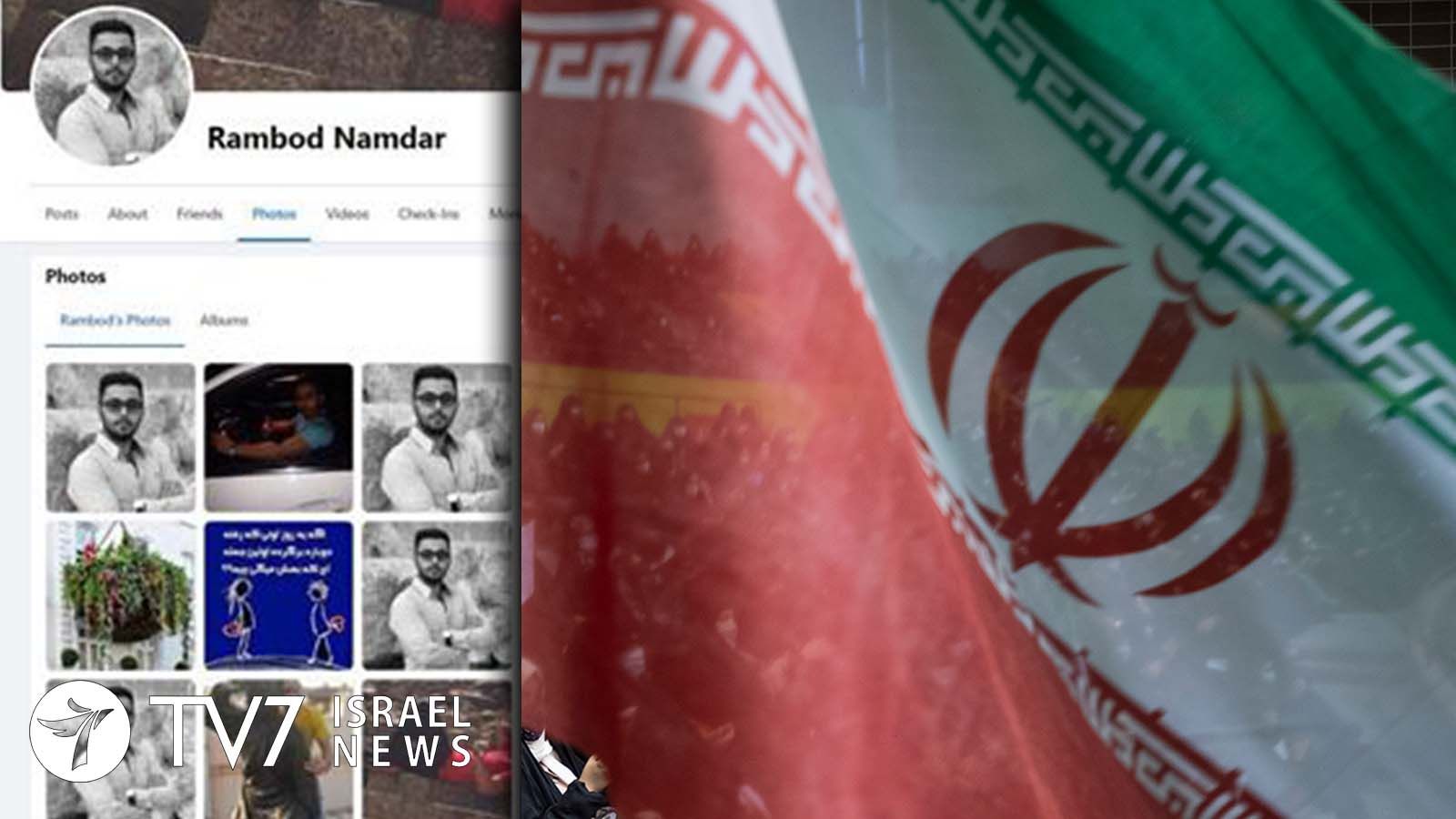It has been released for publication that as part of a joint investigation, the Israeli Security Agency (ISA, Shin Bet) and the Israel Police Lahav 433’s Unit of International Crime Investigation (Yahbal) have been looking into a secret Iranian spying campaign to recruit Israeli women.
By Erin Viner
Several female Israeli suspects have been arrested and indicted on severe charges by the Jerusalem District Attorney’s Office over the past month, according to an ISA statement obtained by TV7, following and extensive surveillance operation.
An operative identifying himself as an Jewish Iranian named “Rambod Namdar” initially contacted the targeted women on Facebook. He then asked and frequently paid the women to perform specific tasks during subsequent WhatsApp telephone conversations, but avoided video chats by claiming his camera malfunctioned.
The ISA said that some of the women agreed to carry out the assignments even they in fact suspected they were interacting with an Iranian spy.
“This is a serious affair in which an Iranian espionage ring operating inside the State of Israel was exposed and taken down,” said a senior ISA official in the statement, adding, “We are seeing espionage attempts inside Israel by approaching Israeli women, supposedly innocently, and convincing them to maintain ongoing relationships.”
The ISA official stressed that, “Despite the suspects’ own suspicions that the man was an Iranian intelligence operative they decided to maintain the relationships and perform various assignments for him,” emphasizing that, “These grievous actions put the suspects themselves in danger along with their family members and innocent Israeli citizens, whose details were transferred to Iranian intelligence, as well as information about Israeli and American sites in Israel that could become targets for terrorist attacks.”
Among those who thought he might be a spy is a 40-year-old resident of Holon, who maintained contact with him for several years. Her suspected offenses include taking cover photographs of the US Embassy in Tel Aviv, inside of the local branches of the National Insurance Institute and Interior Ministry, and the Holon mall. She also provided information about security arrangements at the shopping center.
According to the ISA investigation, the suspect’s husband was not only aware of her activity – but he also believed “Rambod” was an Iranian intelligence operative with whom he spoke personally. The husband abetted his wife by driving her to the US Embassy.
She also enlisted her son, who performed his compulsory army duty at the IDF Military Intelligence Directorate. “Rambod” allegedly spoke to the son to assess his Farsi language ability.
She had also been instructed to gather intelligence about senior officials in the Israeli security establishment.
Another prime suspect is a 57-year-old resident of Beit Shemesh. She received about $5,000 payments on multiple occasions over a 4-year period, during which time she photographed voting polls during the elections for the 23rd Knesset, and tried to take pictures of the US Embassy in Jerusalem but was foiled by security personnel. She also tried to “steer her son to serve in the Israeli Intelligence Directorate in the IDF; and forwarded his IDF identity documentation along with photographs and video clips from his military induction ceremony to her operator.
She also established a club for Iranian expatriates under the auspices of the Merage Foundation; subsequently transferring to “Rambod” the personal identification details about the members, photos and video clips from gatherings, and pictures of the female participants. In addition, she bought electronic devices and installing a hidden camera in a “massage room” in her home, befriended Knesset Member about whom she sent information to the Iranian agent, and bought a computer, cell phone and started a business at his directive.
A third suspect has been identified as a 47-year-old resident of Kfar Saba, who funneled money from “Rambod” to the second suspect on two separate occasions. The funds were apparently delivered to Israel by a relative visiting from Iran, as well as during a meeting in Turkey with a “messenger sent by “Rambod.”
A fourth suspect who is 50-year-old Jerusalemite, who was involved with “Rambod” for about 18 months, who accepted about $902 in Australian currency (AUD) to participate in Israeli business and charity initiatives.
“Iranian intelligence uses the internet extensively, and recently, we are seeing an increase in the number of similar approaches to Israeli citizens. This is done in order to gather information that could help Iran in its fight against Israel; have people carry out various tasks and even draw Israelis to travel abroad with the intention of harming them,” said the ISA statement.
“The ISA will continue to foil Iran’s intelligence attempts, including by monitoring its online activity,” underscored the agency, while calling on all Israeli citizens “to be on the alert for unusual approaches or requests on the internet, all the more so from those identifying as Iranian citizen.”
